2024 Conference: Reading and the Brain
The Institute for Mind and Brain at the University of South Carolina held a one-day
in person conference on the Reading and the Brain, Friday February 16, 2024. It was the fifth
in a series of regular forums for highlighting current topics in cognitive neuroscience.
The conference featured external speakers, as well as invited contributions by local
researchers and a poster session.
Date: Friday February 16, 2024
8:30 am to 5:30 pm
Location on University of South Carolina Campus: Pastides Alumni Center
Pastides Alumni Center, 900 Senate St, Columbia, SC 29201
- Parking: The Park Street Parking Garage (1007 Park Street) adjoins the Pastides Alumni Center. The garage is managed
by the City of Columbia, who charges an hourly rate.
Free registration
This symposium is free to trainees, faculty, and staff.
- Registration is free, but space is limited. Please register by January 30 (link closed). If registrations exceed room capacity, priority will be given to USC students, faculty,
and staff.
- Boxed lunches will be provided for the first 100 guests.
Poster session details
- Showcase your work! Students and postdocs are welcome to present their work.
- Posters related to the conference themes, as well as topics within cognitive science
and neuroscience are acceptable.
- Poster abstracts (< 250 words) should be submitted (link closed) by January 26, 2024 @ 11:59 p.m. Eastern Time.
- Posters must fit on a 4ft X 4ft board.
Agenda for the conference
| Start |
Agenda |
Title |
Speaker |
| 8:30 AM |
Registration & Coffee |
|
|
| 8:45 AM |
Welcome |
|
Dr. Rutvik Desai, IMB Director
Dean Joel Samuels, Arts and Sciences
|
| 9:00 AM |
Invited speaker |
The Science of Reading: Neurobiological Foundations & In-School Neuroscience Applications |
Dr. Nicole Landi |
| 10:00 AM |
Invited speaker |
The Reading Brain: Bilingual and Cross-Linguistic Perspectives on Child Literacy |
Dr. Ioulia Kovelman |
| 11:00 AM |
Break |
|
|
| 11:15 AM |
Local talk |
Multilingualism and reading in practice: Implications for supporting students in contexts
that emphasize English |
Dr. Lisa Fitton |
| 12:00 AM |
Lunch break & Poster session |
|
|
| 1:30 PM |
Local talk |
Lexical Quality, Dyslexia, and Developmental Language Disorder |
Dr. Suzanne Adlof |
| 2:15 PM |
Invited speaker |
How does language brain develop and support reading in children from infancy to elementary
school? |
Dr. Jin Wang |
| 3:15 PM |
Break |
|
|
| 3:30 PM |
Invited speaker |
Collaborating to support language and behavioral development in school settings |
Dr. Jason Chow |
| 4:30 PM |
Panel discussion |
introduced and moderated by Dr. Lesly Wade Woolley |
All invited speakers |
| 5:30 PM |
End of conference |
|
|
Featured external speakers
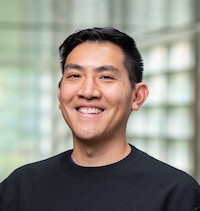
Dr. Jason Chow
Associate Professor of Special Education, Vanderbilt University.
Dr. Chow studies the comorbidity and co-development of language and behavioral disorders
and their implications for educational research and practice.
Title: Collaborating to support language and behavioral development in school settings
Abstract: The purpose of this session is to (1) provide an overview of the literature on the
co-development of language, literacy, and behavioral disorders in school-age children,
(2) present a conceptual model of language and behavioral development to support early
learning, social environments, and high-quality instruction, and (3) summarize a set
of interdisciplinary strategies and at supporting language, literacy, and behavior,
as well as children and youth with challenges in these domains. This session will
also cover issues of overlap between language disorders, incarceration, and other
mental health conditions. We will discuss implications for future research and opportunistic
researcher-practice partnerships, research and opportunistic researcher-practitioner
partnerships.
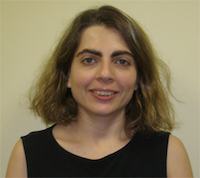
Dr. Ioulia Kovelman
Professor of Psychology at University of Michigan
Dr. Kovelman studies bilingualism and reading in different orthographic systems.
Title: The Reading Brain: Bilingual and Cross-Linguistic Perspectives on Child Literacy
Abstract. Learning to read changes mind and brain. How might bilingual experience influence
children’s neural architecture for learning to read? Words have sounds and meanings.
The neural architecture for learning to read includes the formation of sound-to-print
and meaning-to-print neurocognitive pathways. Importantly, there is also significant
cross-linguistic variation in how children form these associations. Children develop
stronger sound-to-print networks in phonologically transparent languages such as Spanish,
whereas learners of Chinese form stronger meaning-to-print associations. To understand
how bilingual experiences influence children’s developing neural architecture for
learning to read, we use fNIRS with Spanish-English and Chinese-English bilingual
children in the US. Several key findings emerge from these data. First, the findings
reveal principled bilingual transfer effects of children’s word recognition at phonological,
morphological, orthographic, and lexical levels of processing. Second, the findings
reveal the Universal and Language-Specific aspects of literacy development across
these typologically distinct languages in typical development and dyslexia. The findings
are discussed in light of theoretical perspectives on bilingualism, literacy development,
and neurodevelopmental plasticity that supports learning to read across languages
and learners.

Dr. Nicole Landi
Associate Professor of Psychological Sciences at University of Connecticut and Haskins
Laboratories
Dr. Landi studies imaging-genetics in specific reading disability and neurobiological
markers of typical and atypical reading skill.
Title: The Science of Reading: Neurobiological Foundations & In-School Neuroscience Applications
Abstract: Neurobiological approaches have helped to elucidate the brain basis of reading disability
(RD) and of reading intervention response; however, there is often limited or inaccurate
translation of this knowledge to the broader scientific, clinical, and educational
communities. Combined with increasing interest in the science of reading (SOR) and
popularity of putative “brain-based” approaches to learning, it is important to seat
this work in context, create more opportunities for communication between researchers
and practitioners, and facilitate community engaged research. In this presentation
I will give background on the science of reading and the neurobiological basis of
reading and RD. I will also introduce and explain various cognitive neuroscience methods
(e.g., electroencephalogram [EEG] and magnetic resonance imaging [MRI]), noting their
strengths and their limitations. Finally, I will discuss an ongoing project that utilizes
researcher-practitioner partnerships and in-school neuroscience labs to facilitate
bidirectional learning and collect ecologically valid neurobiological and behavioral
data on intervention response.
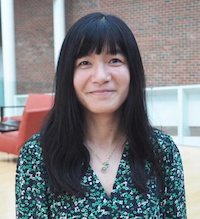
Dr. Jin Wang
Postdoctoral fellow at Harvard Graduate School of Education
Dr. Wang studies neural specialization for phonological, semantic, and syntactic processing.
Title: How does language brain develop and support reading in children from infancy to elementary
school?
Abstract: Language and reading are two critical skills for academic success, vocational achievements,
and socio-emotional health. While most individuals acquire language effortlessly,
some children struggle for unclear reasons. Additionally, children with language difficulties
face heightened risks of developmental dyslexia. To help understand why some children
fall behind, my research program aims to build an interactive neurocognitive model
that explains how the brain develops to process various language information and how
various language processes in the brain support reading development, starting from
infancy to early elementary years. In this talk, two lines of my previous research
will be presented. One studied the neural specialization for language processing in
children's first 10 years of life. The other examined the longitudinal relationship
between the neural basis of phonological awareness and reading skill in 5- to 10-year-old
children. The link between the two lines of work and future directions will be discussed.
USC speakers
- Dr. Suzanne Adlof (bio), USC Associate Professor of Communication Sciences and Disorders. Dr. Adlof studies
relations between oral language and reading development and disorders, including dyslexia
and developmental language disorder (DLD) in school aged children.
- Dr. Lisa Fitton (bio), Assistant Professor of Communication Sciences and Disorders. Dr. Fitton studies
bilingual language and reading assessment in schools using innovative quantitative
methods for behavioral research.
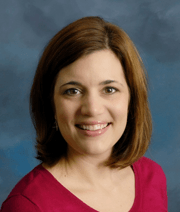
Dr. Suzanne Adlof
USC Associate Professor of Communication Sciences and Disorders
Dr. Adlof studies relations between oral language and reading development and disorders,
including dyslexia and developmental language disorder (DLD) in school aged children.
.
Title: Lexical Quality, Dyslexia, and Developmental Language Disorder
Abstract: Although dyslexia and DLD frequently co-occur, they are different disorders with
different needs for support (i.e., decoding written words vs. understanding and expressing
information with language). Children meeting criteria for both disorders are often
more severely impacted and need support in both areas. Following an overview of these
disorders, I will discuss a series of studies that examine how children with dyslexia
and/or DLD learn and process spoken words, with attention to different aspects of
lexical quality that are impacted by each disorder. Implications for clinical and
educational practice will be discussed.
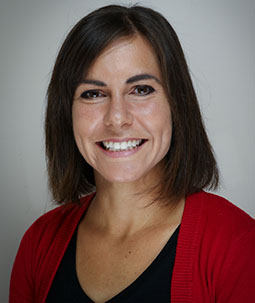
Dr. Lisa Fitton
USC Assistant Professor of Communication Sciences and Disorders
Dr. Fitton studies bilingual language and reading assessment in schools using innovative
quantitative methods for behavioral research.
Title: Multilingualism and reading in practice: Implications for supporting students in contexts
that emphasize English
Abstract: Over 20% of children enrolled in public schools in the U.S. speak at least one language
other than English at home. However, only 13% of teachers - and 8% of speech-language
pathologists - speak more than one language. In most U.S. school settings, general
education is conducted nearly exclusively in English. Few educational professionals
have had access to training in working effectively with multilingual learners, much
less how to maximize these students' literacy development. Focusing specifically on
Spanish-English bilingual learners as an exemplar group for considering the practical
implications of current research, this session will focus on the following topics:
(a) implications of cross-linguistic transfer within the classroom day-to-day, (b)
strategies to identify indicators of dyslexia among bilingual learners, and (c) key
factors to promote long-term reading development among multilingual learners. We will
also discuss barriers and potential approaches for implementing evidenced-based practice
with multilingual learners in U.S. schools.





